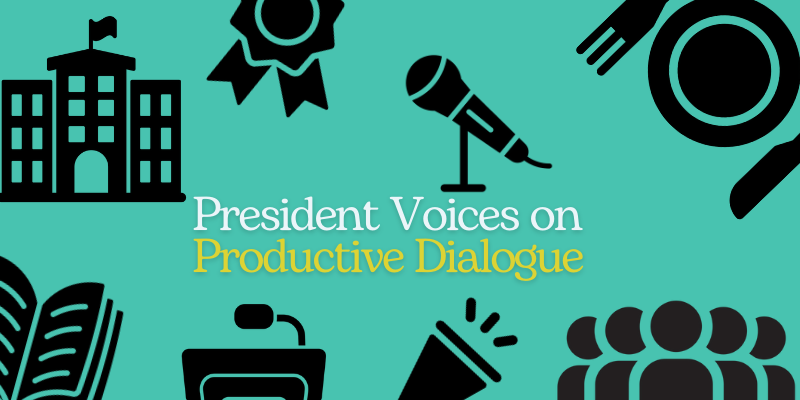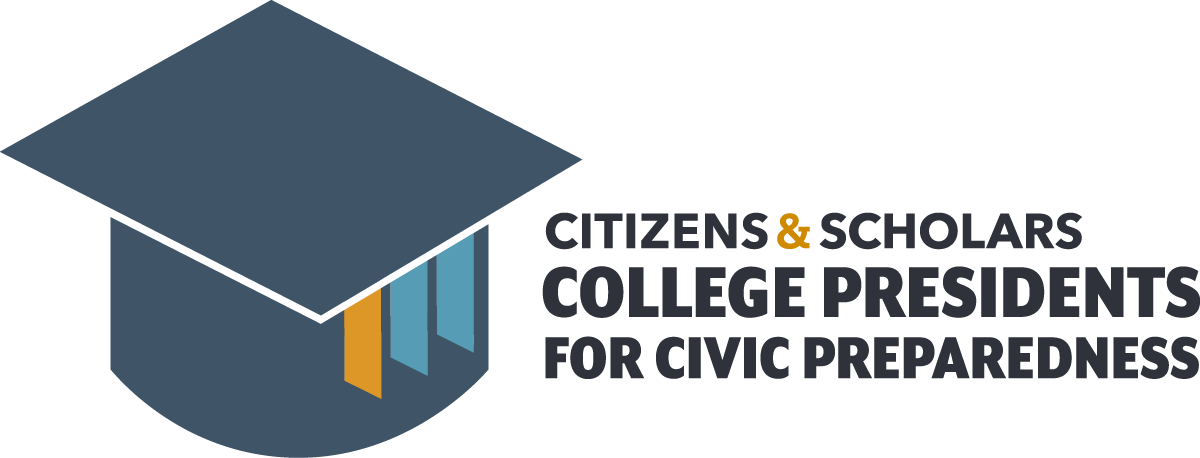Unscripted President Voices: Hear from the leaders strengthening productive conversations on campus

For dialogue initiatives to take root, it’s essential to have leadership from the president’s office. Hear from these university presidents and chancellor’s on their schools productive dialogue efforts:
Hear from Whitman President Sarah Bolton on the university’s stance on dialogue:
“Our campus includes people from more than seventy nations, and we are a community with a wide range of opinions, identities and experiences. That breadth of perspectives is one of our greatest strengths, and engaging meaningfully with differing views is crucial to the learning that happens here. Our values commit us to both freedom of expression and intentionality about the ways we speak, listen, and hold one another’s humanity…”
Read President Bolton’s full letter to the community.
Hear from President Robin Holmes-Sullivan on Lewis & Clark’s Community Dialogues Initiative:
“No matter the issue, colleges and universities must always be places that welcome an open exchange of ideas. This principle is central to the educational mission. At the same time, we must strive to be places that model respectful disagreement that builds community. It is a challenging balance. There are no easy answers. What I know is that as a community of scholars, we must practice the skill of listening and speaking across differences. It is the path to greater understanding and to making the world a better place. The Community Dialogues initiative is just one way we are working toward creating this better world. We must teach it, model it, live it—no matter how difficult the road.”
Hear from University of Wisconsin-Madison Chancellor Jennifer Mnookin about productive dialogue:
“It’s not meant to change minds or help the participants reach a consensus. But it is designed to help give them skills to engage with one another productively and respectfully even when they disagree. To engage across difference which needs to be a key part of the University experience.”
Hear from Trinity University President Vanessa Beasley on the important work of listening
“As a liberal arts institution, Trinity University teaches critical thinking. We often say we teach students how to think, not what to think. One premise of critical thinking is that you apply various analytical skills to data and messages in your world. But what if our culture is encouraging you to rule out certain data and messages before you even hear them? We know this is how social media works, for example, and it may also increasingly be how interpersonal relationships work. That is, we only talk about things we know we will agree on. A necessary first step to combat this narrowing is to teach listening – as a skill, as a relational imperative, and as an ethical good. Listening does not mean agreement; it means that you matter to me and I’d like to know more about why you think what you think. If we don’t start communicating that to each other by listening, then the path forward will be more polarized.
My sense is that many of us are hungry for actual conversation, both as a genre of interpersonal communication and as a metaphor for a new path forward in social relations on college campuses. It has been instructive to think, for example, about the levels of mutual respect and care required for a conversation to take place. How do you communicate that respect before, during, and after an exchange?”
